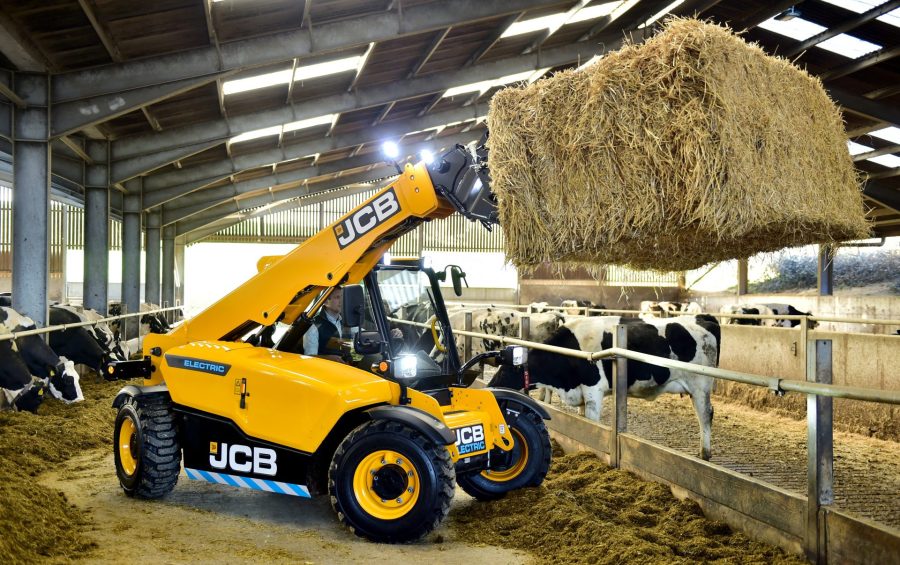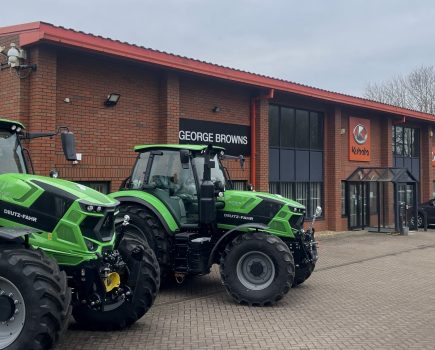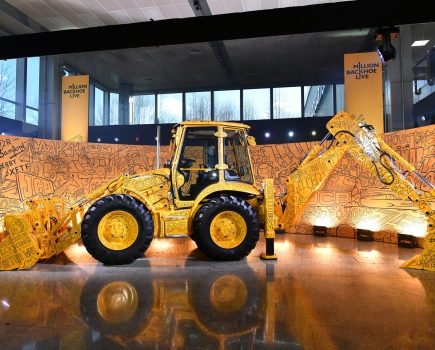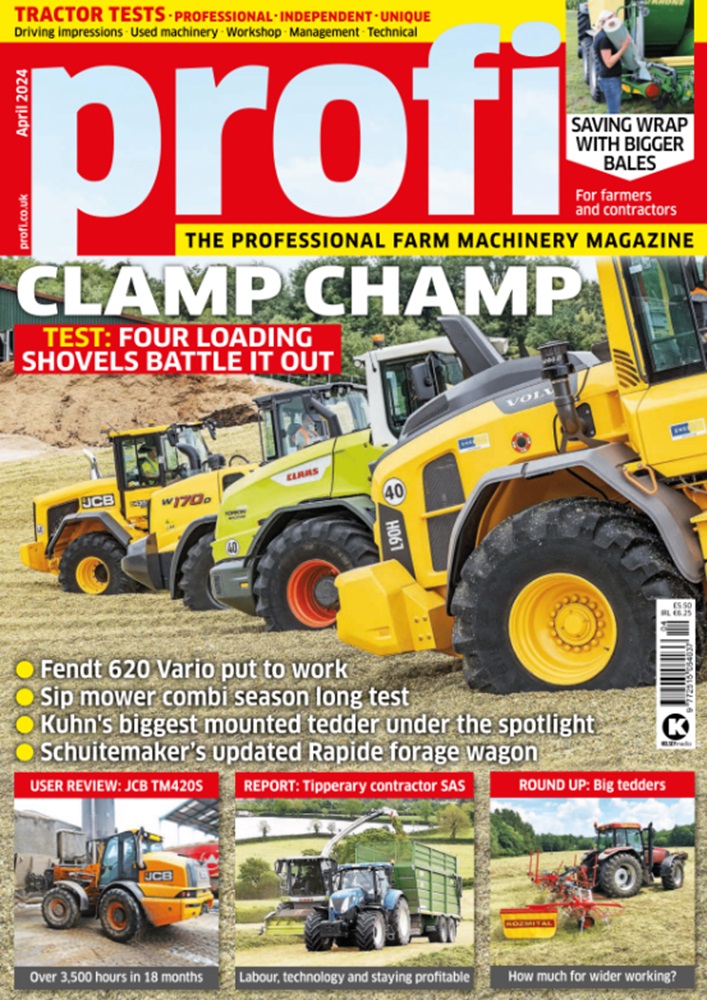The Q+A session at the end of JCB’s first virtual press conference provided a flavour of some alternative energies the company is considering to reduce emissions. These include batteries, dual-fuel technologies and hydrogen-powered fuel cells.
JCB has been busy developing a number of electrically-powered solutions for the construction sector during the past couple of years. The launch of the 525-60E, a 100% electrically-powered Loadall telehandler that lifts 2.0t to 6.0m, signals the start of what could ultimately lead to more electric solutions for the agricultural sector.
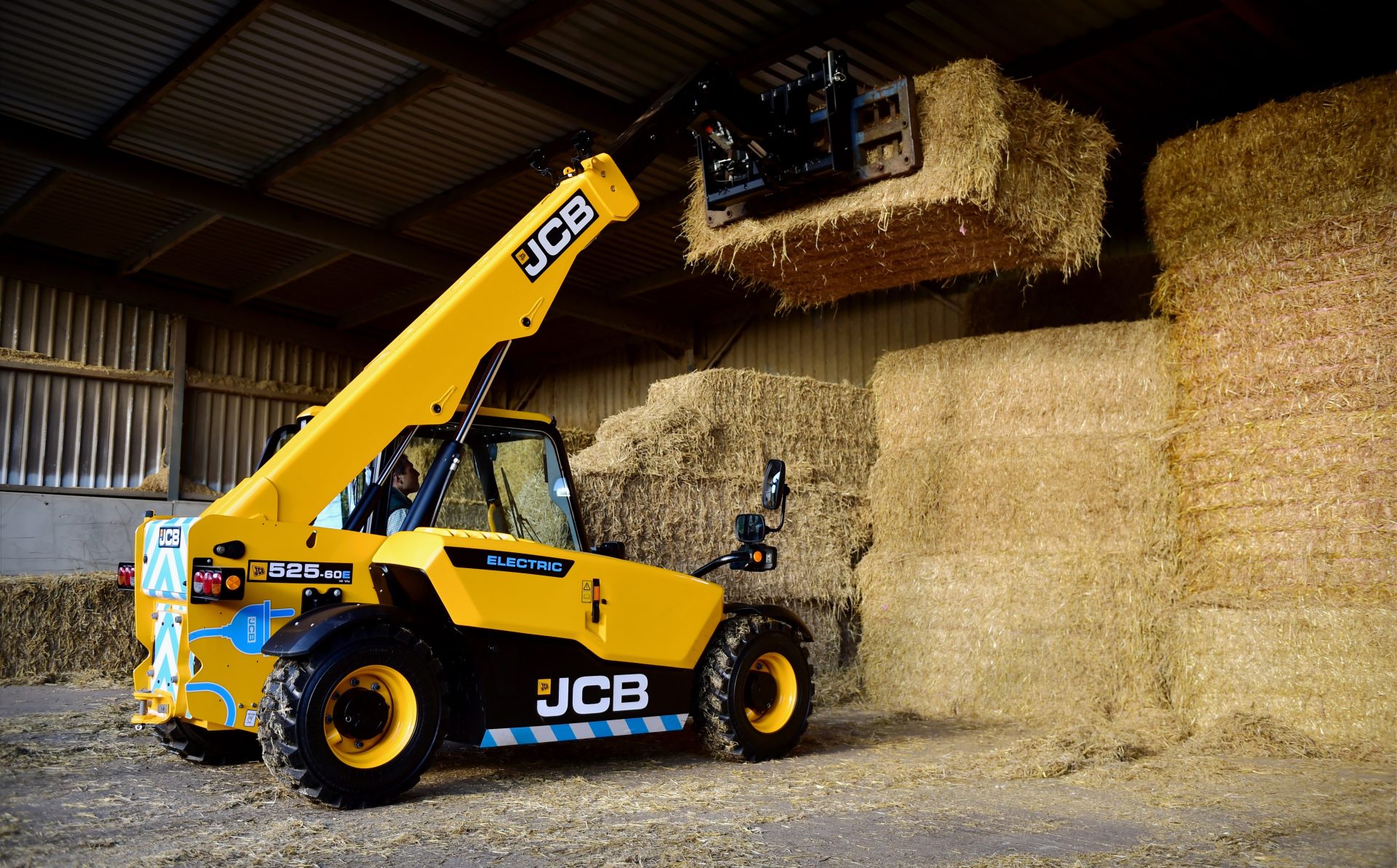
Chief innovation officer, Tim Burnhope confirms the high level of farm interest for electrically-powered machines, with a growing number having their own wind turbines and solar panels.
“These farms want to be in position to have an electric machine around the yard which they can recharge with zero costs from on-farm wind turbines or solar power,” said Mr Burnhope, who adds that all today’s battery-powered machines are very suited to the smaller end of the market.
“We continue to explore the size of machines we put batteries on,” he continued. “The electric telehandler is the start for the Loadall line. We will not stop here and there will be more to come. Watch this space.”
There was a question concerning the electrification of tractors and wheeled loaders in the future. “It is something we are looking at closely along with the rest of the industry,” he confirmed.
Mr Burnhope reckons farmers are fantastic about adopting new technologies, but he says electrically-powered solutions may not be available on all machines.
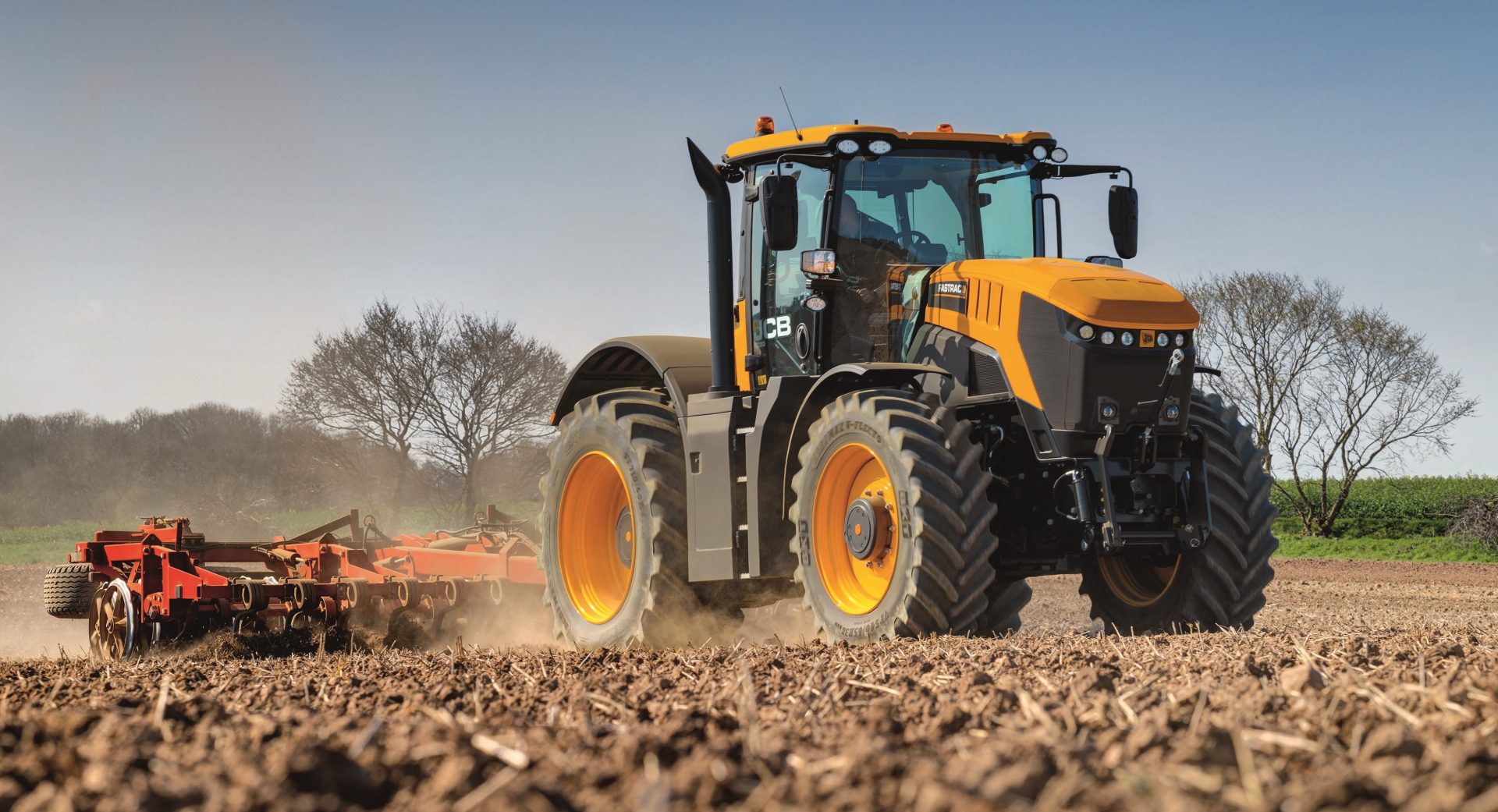
“It is a real challenge to try to recharge high-powered tractors working long hours at harvest or wheeled loaders during the silage season. This will probably require some form of dual-fuel, such as diesel and hydrogen or diesel and something else, or alternative fuels. We really need to experiment with these alternative fuels in the next few years to see which one really suits the marketplace.”
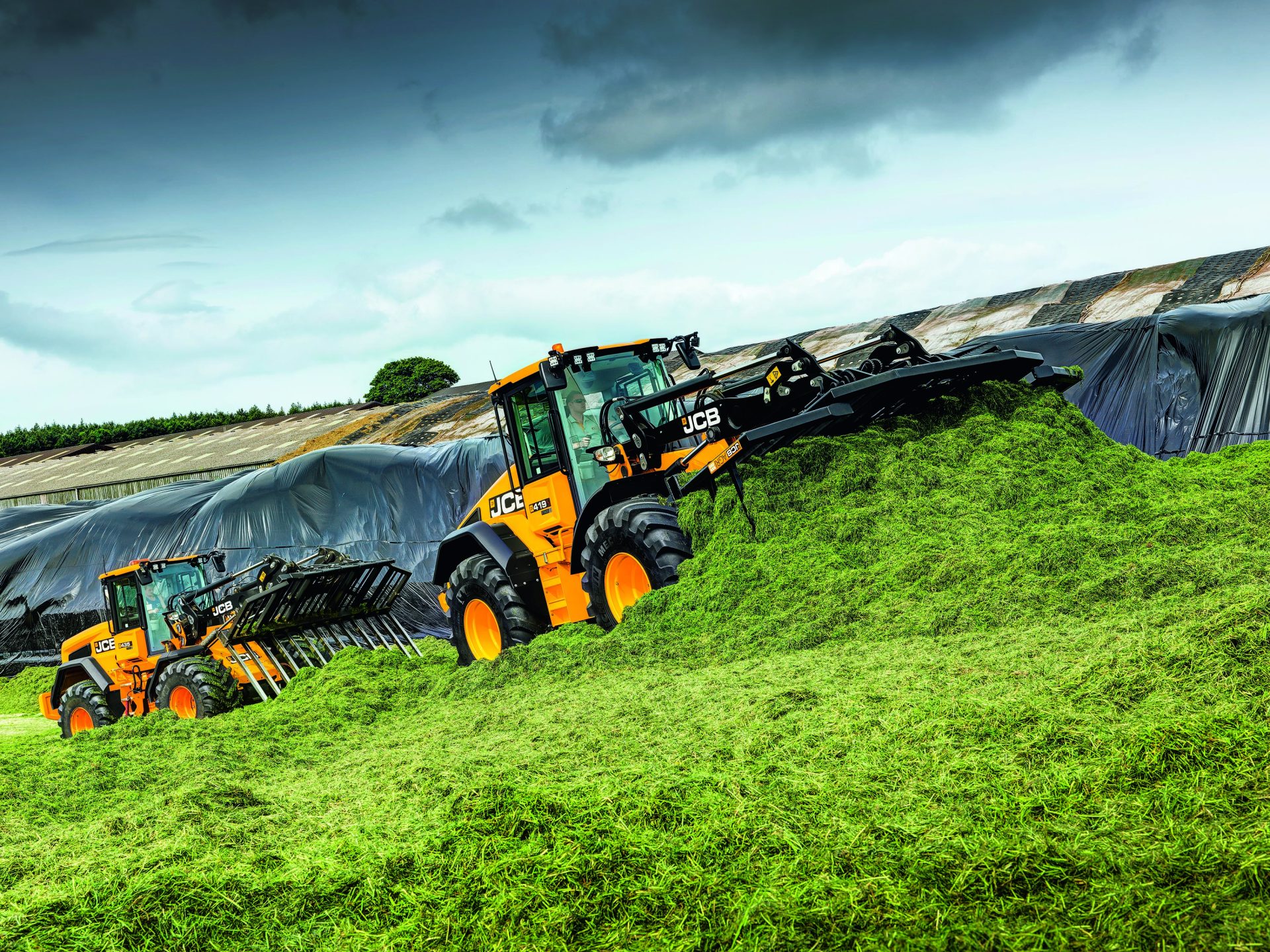
The use of hydrogen as a fuel was catapulted under the spotlights last week following the British government’s recent announcement of a 10-point green energy plan.
Hydrogen reacts with oxygen in a fuel cell to create the energy needed to run electric motors. The only emission from the exhaust is water. JCB sees hydrogen as a potential alternative fuel for the future, not just in the UK, but also in Germany, France and Spain, which all have massive investment programmes to engage in green hydrogen production (made using renewable energies).
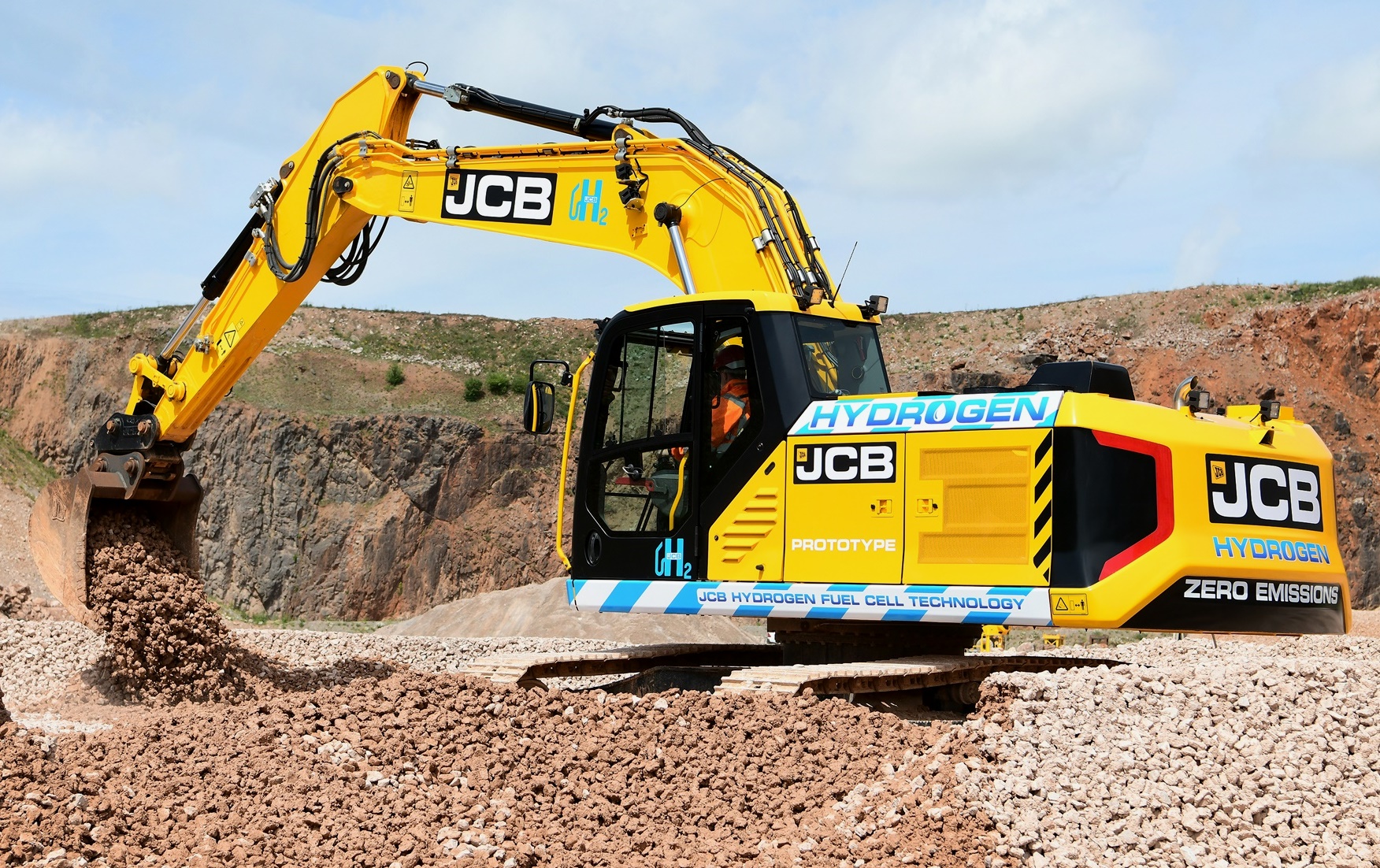
Hydrogen is an area where JCB has already acquired a lot of experience with the experimental prototype of a 20-tonne 220X excavator powered by a hydrogen fuel cell. “We continue to learn more and the fuel-cell powered excavator has been an incredible project for us.”
“We need to put the infrastructure in place, but you could imagine topping up products with hydrogen just like we currently do with diesel. Ideally, we will be able to put hydrogen in some sort of bowser, just like people do today with a normal diesel bowser, and fill up a machine on at the farm or in a field.”

